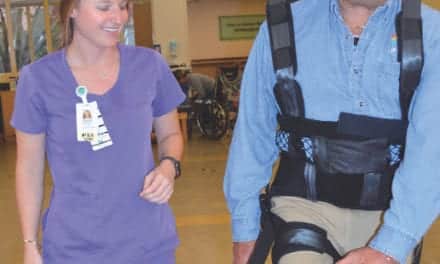.png)
Berend Fedderson, MD, PhD, University of Munich, Germany, led the study and says despite suffering severe strokes coupled with a slight loss of movement and even reduced consciousness, “we noticed that people were still able to cross their legs, which is not as easy as it seems. If this finding is confirmed, leg crossing may be an easy way to help doctors determine who may have a better chance of recovery.”
The researchers report that they observed 68 patients who had experienced a severe stroke and needed intensive care. Researchers then grouped the patients into two groups of 34; individuals who were able to cross their legs compromised the first group and those who could not, were placed in the second group. The yearlong study reported a 53% death rate in the non-crossers compared to 9% in pro-crossers.
Researchers also report that individuals with the ability to cross their legs had fewer neurological problems and also scored well in multiple evaluations of their health and independence. Using the NIH Stroke Scale, which predicts outcome and severity of stroke, pro-crossers obtained a 6.5 compared to an average score of 10.6 for the non-crossers. The year following discharge, leg-crossing patients reportedly scored a 2.9 using the Rankin Scale, indicating only moderate disability and the ability to walk unassisted. Those who could not cross their legs, researchers say, scored a 5, indicating severe disability and a need for constant care.
Rounding out the evaluations, after discharge, the report says those who could cross their legs maintained an average score during the Barthel Test of 34 out of 100, 100 indicating full independence and zero indicating full dependence. The year following their discharge, leg-crossing patients received a score of 71 compared to their non-crossing counterparts who scored 49.
The study was published in Neurology, the medical journal of the American Academy of Neurology.
Source: American Academy of Neurology




